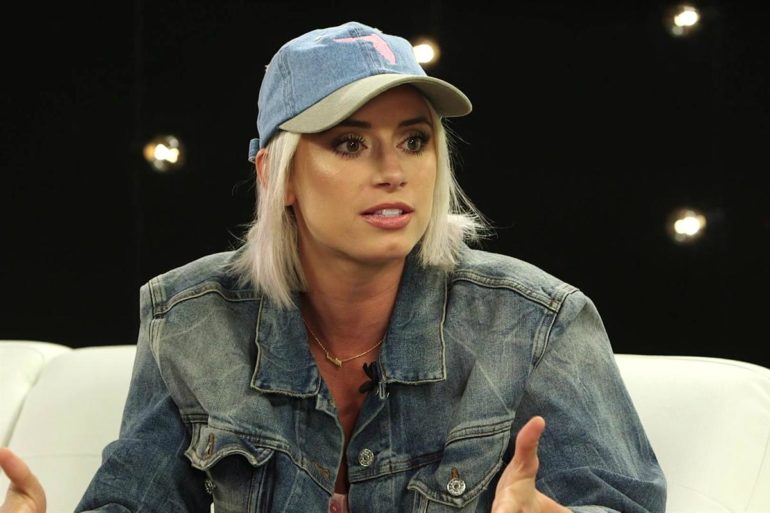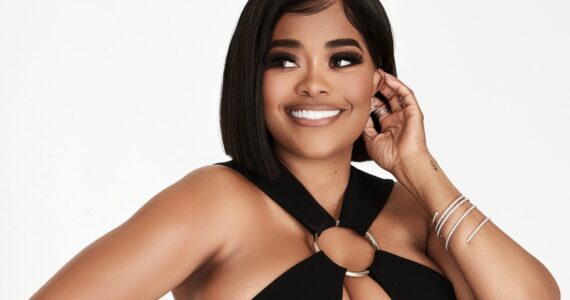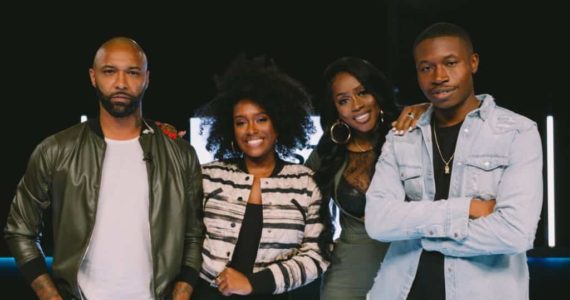“An entertainment company created to bring an authentic atmosphere to every city.”
This statement is one of the headline definitions of influencer YesJulz’s 1AM Entertainment imprint. However, Julieanna Goddard (YesJulz), herself strays far from the realm of authenticity when it comes to her actions and being accountable for them. Julz’s come-up involves receiving the attention of many artists in the hip-hop industry including Migos, Wiz Khalifa and 2 Chainz, all of whom have interacted with or co-signed the curator’s projects. However, a routine trend associated with her climb to fame is her near obsession with Black culture and the people within it.
Her excessive relationship with Blackness reached its peak on Monday (March 11th), when Goddard featured as a guest on Easily Offended: a visual podcast that is hosted by former battle rapper Murda Mook, ItsBizKit and Movie Matt. It’s on this platform — that’s hosted in part by Black men — that YesJulz began her latest onslaught towards Black women; this time deciding to name her targets.
On Karen Civil, Julz undermines her work and reduces it to social gatherings alone. “Me and her [Karen Civil] do different things… I don’t give a f*ck about doing dinners at Louis Vuitton…”. And in reference to Scottie Beam, YesJulz decided to play the victim and insinuate that what she does as a vocation is of a higher importance than Beam’s over 10 year dedication to the music business, which includes internships at Hot 97 and intentionally promoting Black women artists in rap and R&B.
Interestingly, this isn’t the social media stars first time directly addressing and attacking Black women. Her ongoing commentary on this group can be traced to over half a decade ago when Julz bravely quoted Black women in a series of tweets as being “jealous” of her and her ability to draw the Black males attention. Another tactic of hers is the constant reference to her socially desirable body features — such as her curvaceous figure — that Black women allegedly base their anger towards her on internally.
Fundamentally, YesJulz suffers from delusion and cognitive dissonance when it comes to her part to play in the pushback from “the culture”, or at least behaves as though she’s ignorant to the very valid reasons as to why Black women would have an issue with her place in hip-hop today and her subtle behavior that silences these women and their opportunities to prosper within the hip-hop media spaces.
Writer for Uproxx Aaron Williams commented on this ignorance in 2017, in an article calling out White peoples ignorance more broadly. “when called out on them [tweets], she quickly deletes and goes on with her day, often with a half-hearted apology that reads more like annoyance that all these dang “Twitter activists” are bringing so many “bad vibes.” ”
Responses in this vein are both lazy, insensitive and exemplify a lack of engagement when critiqued.
But it gets worse, the levels of ignorance are deliberate at this point and when called out, the business-owner makes it her every priority to silence and financially punish her critics. Seasoned journalist Shamira Ibrahim mentioned this in depth on this week’s episode of Black millennial Youtube channel The Grapevine TV’s episode on “culture vultures”. Speaking on Julz’s trip to Rwanda, Ibrahim notes how unproductive and preformative it was and the response to critique given to the influencer by journalists such as herself and Ivie Ani. “She [YesJulz] misrepresented anything that she was saying and tried to report us to publications that we freelanced for.”
Broadly speaking, Black women (and other women of color) in media are disproportionately denied opportunities for progress in comparison to their White counterparts. A report conducted in 2018 by the Women’s Media Centre, revealed the place of women of color across the journalism realm. “Women of color represent just 7.95 percent of U.S. print newsroom staff, 12.6 percent of the local TV news staff, and 6.2 percent of local radio staff,” Goddard attempting to stop Black women such as Ani and Ibrahim from gaining journalism-related job opportunities feeds into and extends this narrative.
Black men, however, seem to gravitate towards YesJulz and frequently empower her brand of ignorance. In January this year, during an interview with Soulja Boy, the jack of multiple trades freestyled and featured references to her, in fact, being a “vulture,” which Soulja Boy both filmed and conveniently laughed at. This consistent complicit behavior is a dynamic that replicates itself throughout history. It has been seen with the likes of Iggy Azalea and T.I’s participation in her success by using an African American women caricature (through her accent), and with Veronica Vega, who continuously tries to refer to herself as a part of the Black community, uses the n-word and receives backing and guidance from Trick Daddy in Miami.
These parallels are problematic because they not only allow the parameters and standard for hip-hop culture to be somewhat weakened by allowing non-Black people to insult and mock Black people but in the same vein, they silence and belittle Black women and their extremely valid and evidenced concerns. The continuation of protecting women such as YesJulz and even going so far as to insinuate that she can use the n-word— as Murda Mook did on Easily Offended — is worrying.
If figures such as Julieanna Goddard continues to both financially and optimally benefit from a foreign culture powered by a fuelled ignorance ignited by figures within that very same culture, the creators of these cultures will soon find themselves extinct or without the power to gate-keep anymore.




